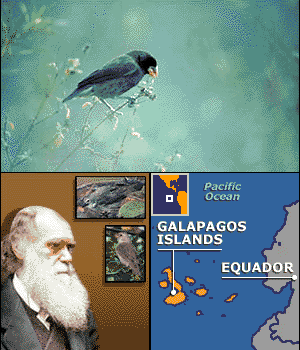The pharaohs of the Galapagos Islands may become extinct. They are now suffering from an epidemic of attack by Pacific fly larvae and scientists are worried about their long-term future.

The pharaohs of the Galapagos Islands may become extinct. They are now suffering from an epidemic of attack by Pacific fly larvae and scientists are worried about their long-term future. The flies lay their larvae in bird nests and these at some point pounce on the young chicks and suck their blood. This is what the Bird Life International organization, which brings together many bird associations, warns this week.
These Pharisees have a place of honor in the history of science. These birds, living only in the Galapagos Islands, were examined in depth by Darwin during the Beagle voyage in the 19s. Observations of these populations, which were divided into different species that each specialized in one ecological niche, were the nucleus that ignited Darwin's theory of evolution.
Two researchers from the Kunard Lorenz Institute in Austria, Birgit Fessl and Sabin Tebbich, warned about this this week. They studied the nests of 12 Galapagos species, including seven of the 13 species studied by Darwin, and found that all were attacked by parasites.
According to Dr. Pesal, this is a serious problem. If it was just the parasites the birds would be able to deal with them but a combination of factors, including death due to a succession of dry years in the Galapagos and the theft of nests by rats. Due to this combination, some of the species may quickly become extinct.
The larvae of the flies hide in the nests. They hide during the day and come out at night to suck the blood of the chicks and in some cases they dig deep into the body, and sometimes even into the brain of the birds. These parasites were first detected in 1997, and are apparently new residents of the islands.
The Austrian study was published in the latest issue of IBIS - a journal of ornithology and it includes up-to-date data on the parasite problem. On Santa Cruz Island, the two found that 97 percent of the nests tested were infected with the Philornis downsi parasite.
For news at the BBC
